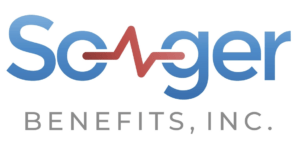Indexed Universal Life Insurance
Summary
Indexed Universal Life Insurance (IUL) is a type of permanent life insurance that combines the death benefit protection of traditional life insurance with the potential for cash value growth through indexed accounts tied to market performance. It offers policyholders the opportunity to accumulate cash value based on the performance of a selected stock market index, such as the S&P 500, while providing protection for their loved ones in case of death. The cash value growth is tax-deferred, offering potential tax advantages to policyholders. IUL policies often come with flexible premium payments, allowing adjustments based on changing financial circumstances. Additionally, the policyholder can access the accumulated cash value through loans or withdrawals, providing liquidity during emergencies or retirement.
Comparison Table
| Insurance Type | Death Benefit | Cash Value Component | Market Participation | Tax Benefits | Flexibility |
|---|---|---|---|---|---|
| Indexed Universal Life Insurance (IUL) | Yes | Yes | Linked to market index performance | Tax-deferred cash value growth | Flexible premium payments |
| Term Life Insurance | Yes | No | No | No tax benefits | No flexibility in premium payments |
| Whole Life Insurance | Yes | Yes | No direct market participation | Tax-deferred cash value growth | Premium payments are fixed |
| Universal Life Insurance | Yes | Yes | Investment options, but not directly tied to market | Tax-deferred cash value growth | Flexible premium payments |
Indexed Universal Life Insurance
Summary
Indexed Universal Life Insurance (IUL) is a type of permanent life insurance that combines the death benefit protection of traditional life insurance with the potential for cash value growth through indexed accounts tied to market performance. It offers policyholders the opportunity to accumulate cash value based on the performance of a selected stock market index, such as the S&P 500, while providing protection for their loved ones in case of death. The cash value growth is tax-deferred, offering potential tax advantages to policyholders. IUL policies often come with flexible premium payments, allowing adjustments based on changing financial circumstances. Additionally, the policyholder can access the accumulated cash value through loans or withdrawals, providing liquidity during emergencies or retirement.
Pros and Cons of Indexed Universal Life Insurance
Pros:
- Market-Linked Growth: IUL's cash value is linked to the performance of a stock market index, allowing for potential higher returns compared to traditional fixed-rate policies.
- Tax Advantages: The cash value growth within the IUL policy is tax-deferred, meaning you won't pay taxes on the gains until you withdraw funds, potentially allowing for significant tax savings over time.
- Death Benefit: Like other life insurance policies, IUL provides a death benefit to your beneficiaries, ensuring their financial security in the event of your passing.
- Flexibility: IUL policies often offer flexible premium payments, allowing you to adjust the amount or even skip payments within certain limits. This feature is especially useful during financially challenging times.
- Liquidity: The accumulated cash value within the IUL policy can be accessed through policy loans or partial withdrawals, providing liquidity during emergencies or retirement.
- Combination of Insurance and Investment: IUL offers the benefits of both life insurance coverage and investment potential, making it an attractive option for those seeking financial protection and growth opportunities.
Cons:
- Market Volatility: While IUL offers the potential for market-linked growth, it also exposes your policy to market downturns. If the market performs poorly, the cash value growth may be limited or even negative.
- Policy Charges: IUL policies may come with various charges, including administrative fees and cost of insurance charges. It's essential to comprehend these costs to assess the policy's long-term viability.
- Complexity: IUL policies can be complex, with various moving parts and options to consider. Understanding the policy's mechanics and features is crucial to making informed decisions.
- Surrender Charges: If you decide to surrender the policy prematurely, you may incur surrender charges, reducing the cash value you receive.
- Overfunding Risk: Overfunding an IUL policy can lead to it being classified as a Modified Endowment Contract (MEC), resulting in potential tax implications.
- Lower Returns Compared to Direct Investments: While IUL offers the potential for market-linked growth, the returns may not be as high as direct investments in the stock market.
